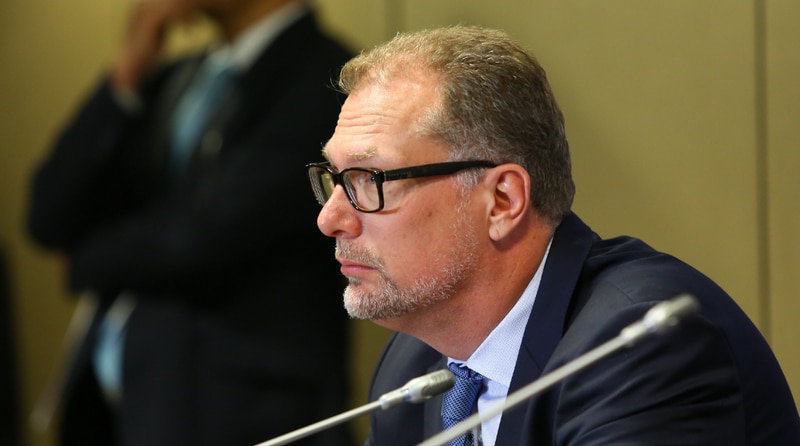ICANN has become weaker over the past four years.

Leader of least resistance. (Photo from ICANN.org)
As he approaches four years as CEO of ICANN, what will Göran Marby’s legacy be?
Five years from now, when people question why domain names are so much more expensive than they used to be, they’ll point to the process he oversaw in 2019 and 2020.
He lifted price controls on .org. Then .org was bought out by a private equity company. He rolled over to Verisign, accepting $20 million to fill a budget hole and giving the company the right to raise prices.
He completely threw out the optics of caring about public comment periods, despite giving lip service to their importance.
I’ve heard him described as ineffectual. Pushover might be a better term.
I have no inside look at what’s happening behind the closed doors of ICANN. But one has to wonder if he’s just trying to figure out the path of least resistance. What can ICANN do not to get sued and appease all of the companies that fill the non-profit’s coffers?
Is the blame solely on Marby, or is it also on a spineless board that’s also trying to find the path of least resistance?
ICANN’s changed stance on price controls is a key example. Who within ICANN decided to make this change? Why did Marby go along with it? Does the board care, or does it just want to deflect any criticism?
Zak Muscovitch recently wrote a letter (pdf) to ICANN’s board asking about its decision on .com. He wrote something that echoes a question I’ve been asking:
Your letter and the “Decision Paper” assert that “ICANN is not a price regulator”. This statement, which has become a reflexive refrain from ICANN management, deserves considerable scrutiny. It has never been the subject of any multistakeholder policy development process and appears to be a self-serving means of ICANN avoiding taking responsibility for its actions. If by “price regulator” you mean that ICANN is not a “government agency”, then of course ICANN is not a price regulator per se. But you have not offered a definition, and that argument would be a red herring, because ICANN has been setting prices for contracted parties since its inception.
Let’s face it, ICANN’s decision to no longer have a role in controlling prices is:
a. A recent change. It considered it back in 2006 when it renewed some contracts, but decided against it after community feedback.
b. A decision made by the organization itself and not the community.
After controlling prices of legacy top level domains from its origin, it has suddenly washed its hands of the responsibility.
Why? Because it’s the path of least resistance.
By deferring to outside parties, or the registries themselves, ICANN can avoid tough decisions. Weak organizations avoid making tough decisions. But weak organizations degrade themselves, and eventually, outside forces go for the jugular.
By becoming a spineless organization, ICANN is on a path to be made irrelevant.
That’s a shame.
Post link: What will Göran Marby’s legacy at ICANN be?
© DomainNameWire.com 2020. This is copyrighted content. Domain Name Wire full-text RSS feeds are made available for personal use only, and may not be published on any site without permission. If you see this message on a website, contact editor (at) domainnamewire.com. Latest domain news at DNW.com: Domain Name Wire.
Related posts:
Go to Source
Author: Andrew Allemann





